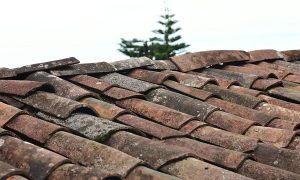
I was admiring the ornate ceiling of St Paul’s Cathedral this week, when I remembered that Mick the roofer was coming round to fix some loose tiles. I don’t know about you but whenever I think about roof tiles, Shakin’ Stevens pops into my head.
I know what you’re thinking: “That’s one good reason never to think about roof tiles.” The trouble is, I spend most of my time with song lyrics bouncing around in my head and I have no control over the choice of song. In fact, it’s often the more annoying songs that bounce around the longest.
So This Ole House, which took Shaky to the top of the charts in 1981, has been with me for 44 years and there’s one line that always stands out: ‘Ain’t got time to fix the shingles’. Now, for a lad of 15 in 1981, ‘shingles’ meant one of two things: 1 a beach that you couldn’t walk on in bare feet; 2 an inflammatory disease. Whatever you think of Shaky, I couldn’t see how either was relevant.
Then I learnt that a shingle is what the Americans call a roof tile. It’s another example of one of those archaic English words that we’ve abandoned but the Americans have hung on to. It’s almost as if there are parts of America where the modern world has yet to penetrate, but that can’t be the case, can it?
It’s also an example of how our vocabulary converges from diverse sources to give us words that mean a variety of very different things. The shingles that Shaky sang about come from ‘scandula’, the word the Romans used for their roof tiles, which morphed into ‘scingul’ in Old English. The shingle beach comes from the Norwegian word for gravel, ‘singl’, which, if you close your eyes, is the sound made by waves lapping on small stones.
The inflammatory disease, also known as herpes zoster, comes from the Latin word for a girdle or sword belt. Why? Because shingles tends to affect the girdle area around the middle of the body. The Greek word for a girdle was ‘zoster’, the Latin word was ‘cingulum’.
While we were turning ‘cingulum’ into ‘shingles’, the Spanish turned it into ‘cincha’, meaning a girdle or webbing. This fell into American parlance to mean a girth, the strap that keeps a saddle tightly in place on a horse. So ‘cinch’ came to mean ‘to secure or make firm’, which gradually drifted into meaning something that is sure or easy.
Cinch is not a word Mick would use to describe my roofing job. He’s been bouncing off roofs for decades without any sign of lasting damage other than a passion for Chelsea Football Club, but there’s one drop that even he blanched at, possibly because of the wrought iron spiked railings directly underneath. Satay Mick anybody? Roofer kebab? I’ll let you know next week how he gets on. If the word is ‘skewer’, you’ll know.


